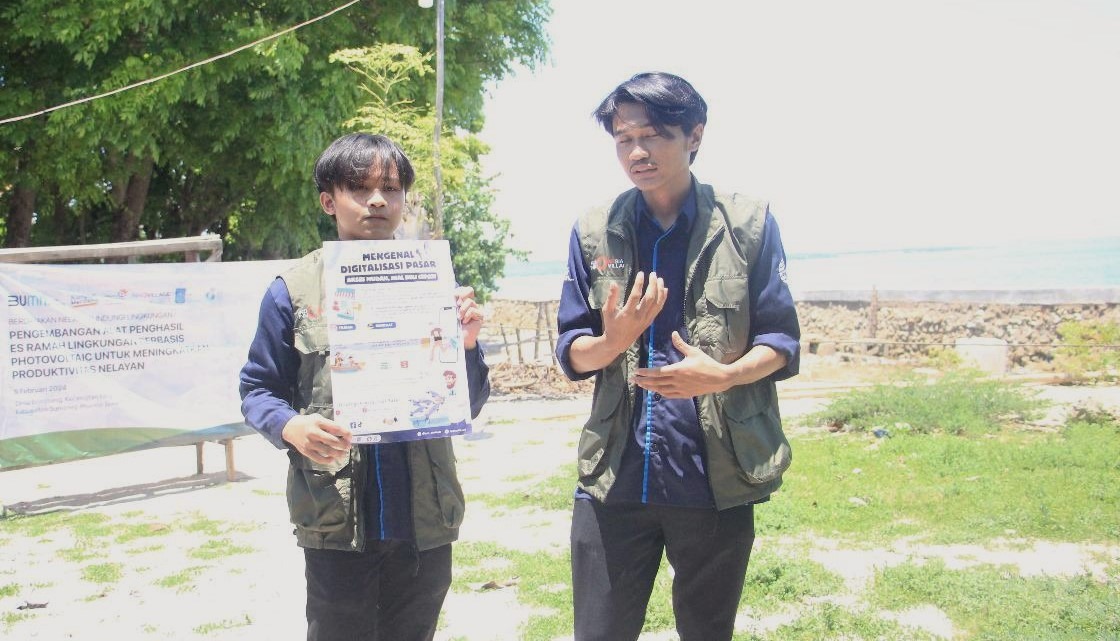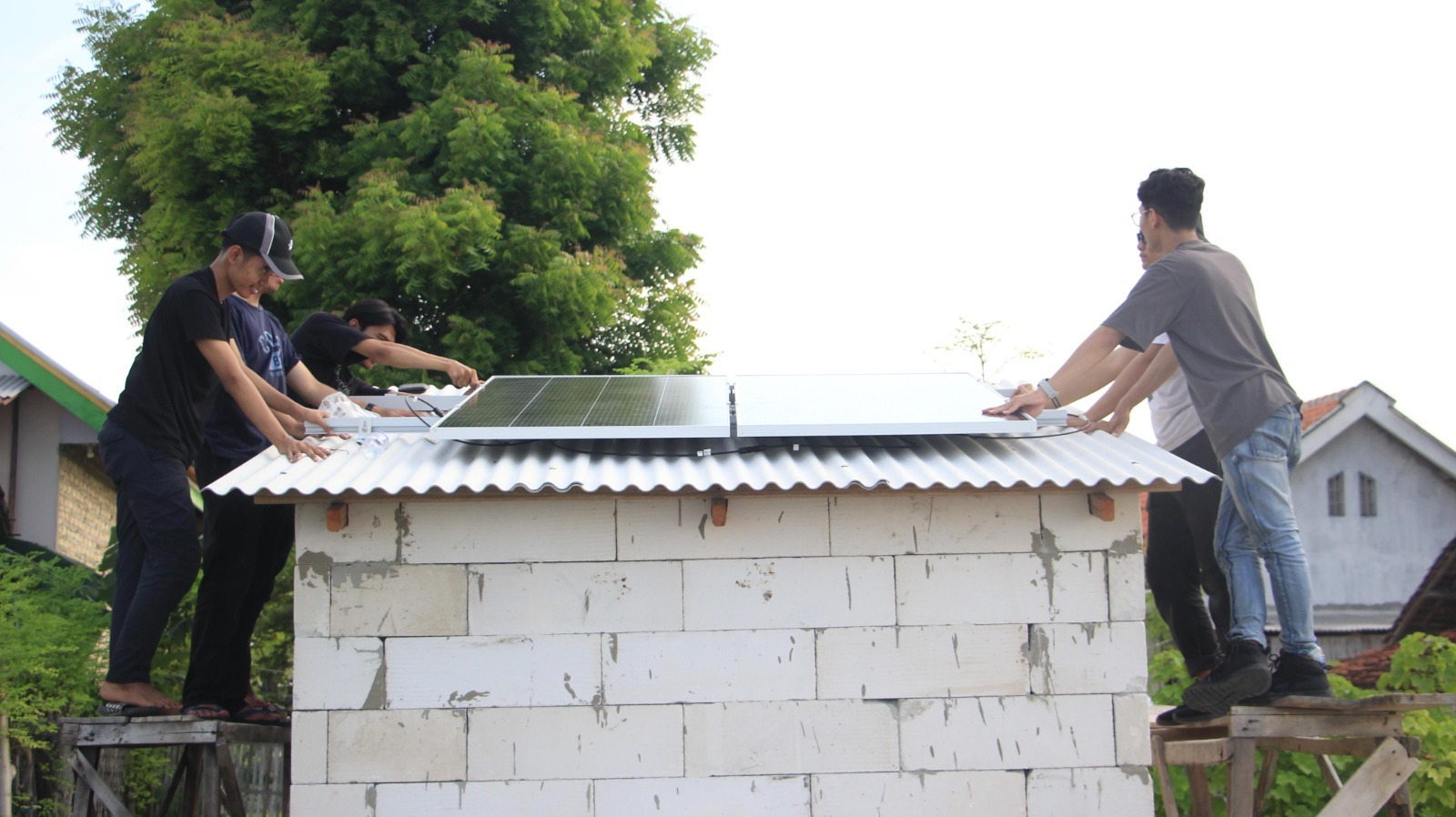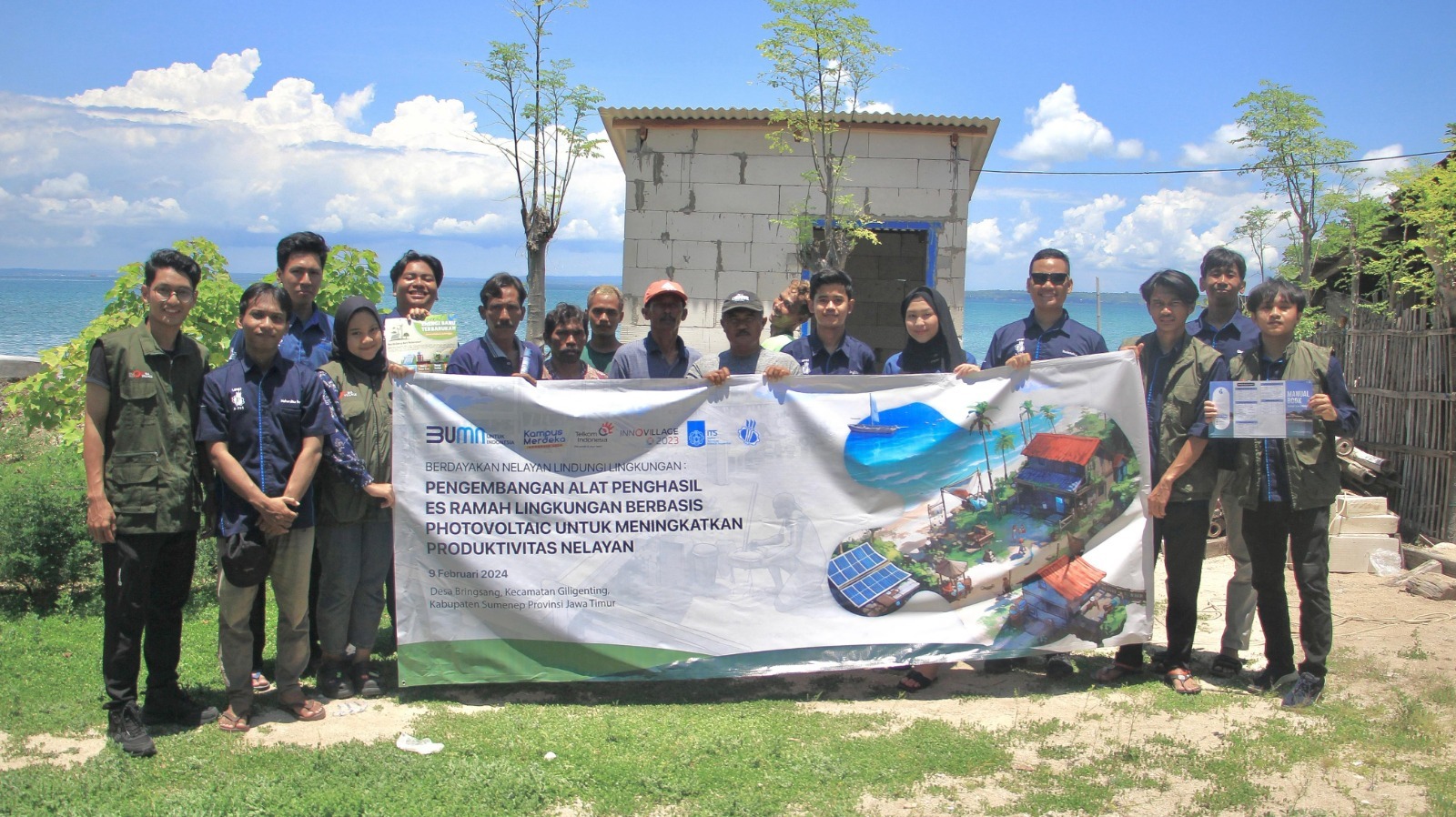ITS Develops Environmentally Friendly Ice Production Equipment

Market digitalization development for fishermen in Bringsang Village, Sumenep
ITS Campus, ITS News — Continuing to support the development of renewable energy, the research team from the Power System Measurement and Identification Instrumentation Laboratory (LIPIST) in the Department of Electrical Engineering at Institut Teknologi Sepuluh Nopember (ITS) innovated the creation of an environmentally friendly ice-producing device. Photovoltaics, or solar panels, are used to convert sunlight into electricity.
One of the team members, Irgi Israr Altamis, revealed that the social project currently being carried out by his team aims to help increase fishermen’s production in Bringsang Village, Sumenep, East Java. Despite having great maritime potential, fishermen groups in this village still need help meeting the availability of preservatives in the form of ice. “The problem faced is that the existing electrical power cannot meet the electricity supply needs for refrigerators,” he said.
Located in a coastal area, Bringsang Village tends to get high-intensity sunlight throughout the year. This allows sunlight to become a new source of electrical energy besides the diesel power plant (PLTD), which has limited use in the village. In addition, photovoltaics is considered effective in reducing carbon emissions, as are efforts to maintain oxygen concentrations in the air.

Installation of photovoltaics as a Solar Power Generation (PLTS) tool by the ITS research team to support ice-making for fishermen’s needs
The Department of Electrical Engineering student explained that the equipment used was an environmentally friendly, low-watt refrigerator integrated with photovoltaics. The sunlight captured by the solar panels is then converted into direct current (DC). With dimensions of 2×1.64 meters, the 300-watt-peak (wp) solar panels can meet the refrigerator’s electricity needs for up to 20 hours daily.
Furthermore, the generated electric current is then taken to the Solar Charge Controller (SCC) to ensure the solar panels produce maximum power and transfer it to the battery with high efficiency. “The battery functions to store energy so that this tool not only operates when exposed to sunlight but also at night,” added the student from Jember.
Before it can be used in a refrigerator, the DC electric current must be converted to alternating current (AC) using an inverter. Meanwhile, the inverter connected to the fridge will ensure daily electricity availability to meet ice production. It can hold up to 150 liters of water; ice production is carried out three times a day, and it can be used communally by fishing groups in Bringsang Village.

ITS research team, together with the Karya Bahari Fishermen’s Group, Bringsang Village, Sumenep
Apart from developing ice-producing equipment, Irgi and his colleagues also provide guidance on market digitalization for fishermen through the introduction of e-commerce. This socialization aims to support increasing community productivity. Not only can people sell sea catches directly, but they can also use various platforms to sell and distribute processed food outside the island.
This research is carrying the principle of sustainability. It has been submitted for the Innovillage 2023 competition held by PT Telkom Indonesia and Telkom University, which started on October 25, 2023, and will end on September 9, 2024. The ITS research team has entered the top 150 and obtained funding for product development.
After the final implementation stage, Irgi hopes this research will become an applicable solution for other fishermen with similar problems. “Hopefully, this research can help improve the welfare of fishermen in Indonesia,” said this class of 2021 students. (ITS Public Relations)
Reporter: A Rifda Yuni Artika
Related News
-
ITS Lecturer Introduces Madurese Culture to the International Stage
ITS Campus, ITS News — Continuing to show local wisdom to the world community, this time a lecturer from the Department
February 20, 2024 14:02 -
ITS Researchers Remind TKDN is Crucial for Economic Independence
ITS Campus, ITS News — The Domestic Component Level (TKDN) is the key to restoring the glory of the Indonesian
February 20, 2024 14:02 -
Strengthening Quality Education, ITS Professor Develops Adaptive Technology for Students
ITS Campus, ITS News — Differences in students’ abilities in understanding lessons are often a challenge for teachers in the classroom.
February 20, 2024 14:02 -
ITS Graduates Create Reverse Logistics Model for PET Plastic Waste Recycling
ITS Campus, ITS News — Doctoral graduate from the Department of Industrial and Systems Engineering, Sepuluh Nopember Institute of Technology (ITS) Dr. Yuniar
February 20, 2024 14:02
